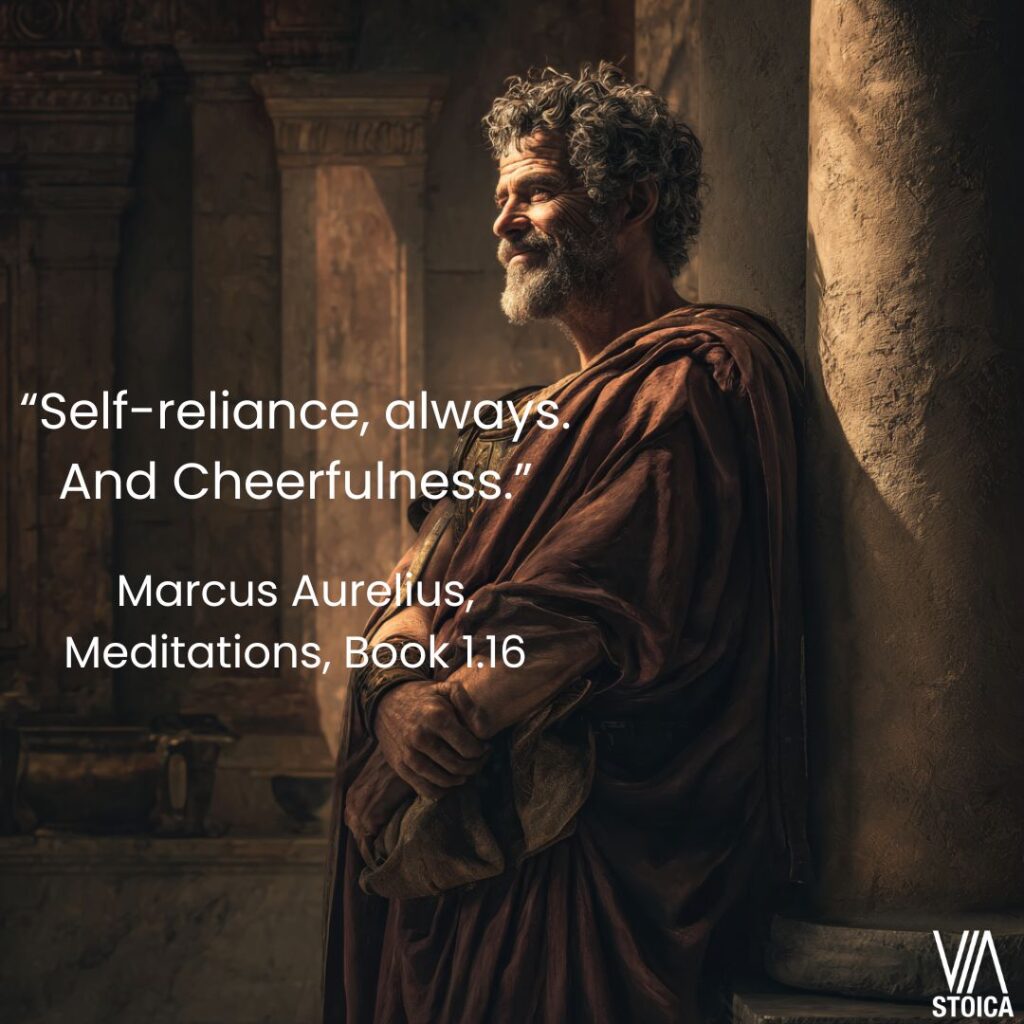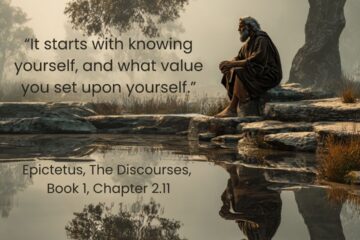“Self-reliance, always. And Cheerfulness.”
Marcus Aurelius, Meditations, Book 1.16

In just five words, Marcus Aurelius offers one of the simplest yet most powerful formulas for inner peace: depend on yourself, and don’t forget to smile. With self-reliance, Marcus means depending on our rational mind and our reason to either assent to or reject the impressions.
This line comes from the first book of Meditations, where Marcus pays tribute to his adopted father, Antoninus Pius. He admired the emperor not for his status or power, but for his character: calm, composed, and unwaveringly self-reliant, yet cheerful and kind.
The lesson is clear: Stoic self-reliance is not about isolation or hardening yourself against the world. It’s about developing a quiet strength, grounded in your own reason and choices, while still showing up with compassion and composure.
Practical reflections or insights
1. Self-reliance is moral strength, not detachment
For the Stoics, self-reliance means trusting your own reasoned choices, not being swayed by praise or criticism, not clinging to external goods or outcomes. It’s the discipline of knowing what is up to you, and resting your happiness on that alone.
2. Cheerfulness is a practice of perspective
Stoicism is often misunderstood as cold or serious. But cheerfulness was a virtue admired by the ancients. It signals an inner harmony, the ability to carry burdens without complaint and respond to life with balance, not bitterness.
3. The two go hand in hand
The more you rely on your own reason and virtue, the more cheerfulness becomes your natural state. You are no longer tossed around by every event. You learn to act with integrity and accept whatever comes with grace.
If you’re navigating life transitions, facing uncertainty, or simply seeking more stability, cultivating Stoic self-reliance can shift your mindset from reactive to rooted.
FAQ Section
What does Stoic self-reliance mean?
Stoic self-reliance means placing your trust in your own reasoned choices and moral character, rather than external validation or outcomes.
Is cheerfulness a Stoic value?
Yes, Stoics admired cheerfulness as a sign of inner peace and self-command. It reflects a mindset free from complaint and grounded in reason.
How can I practice Stoic self-reliance daily?
Start by reflecting each day on what is truly up to you, your thoughts, intentions, and actions, and let go of what lies beyond your control.
Want to explore more Stoic strategies?
Book a free consultation with one of our Stoic Coaches or read more on the Marcus Aurelius Quotes page. You can also listen to the Via Stoica podcast on Spotify or Apple Podcasts or watch it on YouTube.


0 Comments